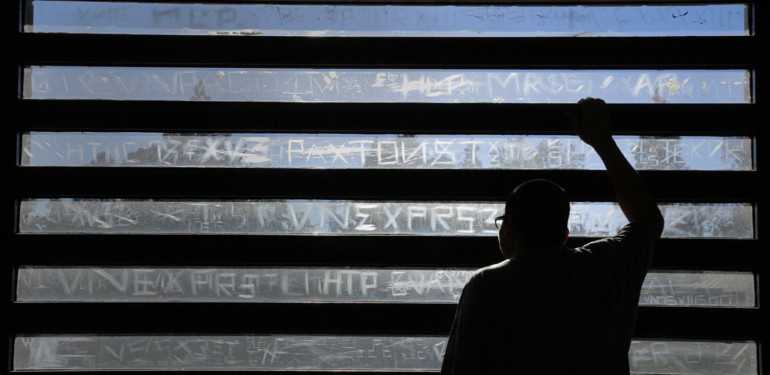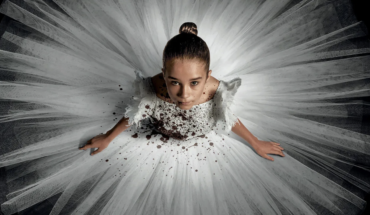When you let your characters tell the story, you can end up with a story which takes off in directions you might never have expected it to. This could be said for the way Benjamin Lear handles his debut feature, They Call Us Monsters. In this stunning documentary, the narrative is determined by the forces of fate — and the California criminal justice system.
Set inside the Compound, a facility that acts as a kind of limbo for convicted juvenile felons awaiting their sentencing, we follow Juan, Antonio and Jarrad, as well as their screenwriting teacher Gabriel. The three boys have signed up to take a screenwriting class that will pass the time while they await their sentencing. Gabriel, a bespectacled man with a soft voice, is visibly nervous at the beginning — it’s his first teaching job, after all.
The aim of the class is for them all to write a script together, one which borrows heavily from their troubled pasts. This is a perfect vehicle for the audience to connect with the characters. Jarrad continually disrupts the class and plays the role of class clown, while Antonio shows his sensitive side and his dedication to the script. As the sessions go on, we see the bond Gabriel is forming with his students. A particularly funny scene involves Jarrad criticising Gabriel’s contribution to their script after seeing Gabriel’s cringeworthy attempts at writing ‘street’ dialogue.
Footage showing family and friends of the inmates breaks up the classes, and includes a moving interview with the victim of Jarrad’s attempted murder. Lear films these segments in keeping with his fly-on-the-wall point of view — instead of staged interviews and talking heads, Lear prefers to film on location, whether on the street or in the crowded apartment of Antonio’s family.
The film also includes political discourse on the treatment of juvenile offenders in the state of California. Opposing viewpoints on the question of rehabilitation are played in clips of U.S. officials weighing in on the issue. It makes for captivating viewing, especially when these clips are interspersed with the stories of three kids directly affected by the debate, yet they have no say in the result.
Benjamin Lear’s film is a deeply felt and beautifully shot meditation on the nature of change and rehabilitation. They Call Us Monsters is an important piece of work that deserves a wide audience.
– Tom
Tom Bensley is a freelance writer in Melbourne who reviews anything he attends, watches or reads. It’s a compulsion, really. Follow him @TomAliceBensley.
They Call Us Monsters will be playing at the Antenna Documentary Film Festival, running 11–16 October in Sydney and 2–6 November in Melbourne. Read our guide to the must-see films of the festival.




